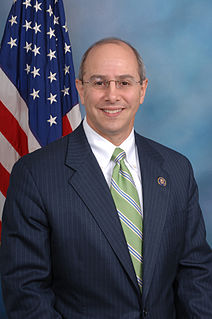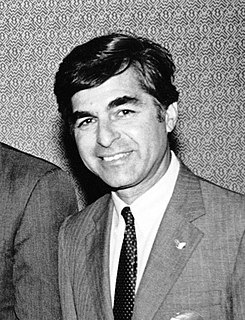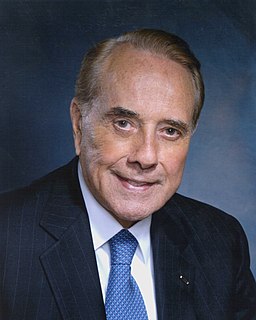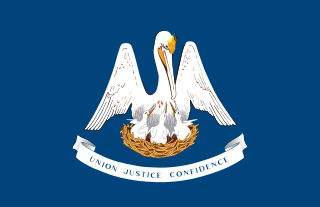
The 1986 United States Senate elections was an election for the United States Senate in the middle of Ronald Reagan's second presidential term. The Republicans had to defend an unusually large number of freshman Senate incumbents who had been elected on President Ronald Reagan's coattails in 1980. Democrats won a net of eight seats, defeating seven freshman incumbents and regaining control of the Senate for the first time since January 1981. The party not controlling the presidency gained seats, as usually occurs in mid-term elections.

The 1978 United States Senate elections in the middle of Democratic President Jimmy Carter's term. Thirteen seats changed hands between parties. The Democrats at first lost a net of two seats to the Republicans, and then one more in a special election. Democrats nevertheless retained a 58-41 majority.

The 1970 United States Senate elections was an election for the United States Senate, taking place in the middle of Richard Nixon's first term as President. The Democrats lost a net of three seats, while the Republicans and the Conservative Party of New York picked up one net seat each, and former Democrat Harry F. Byrd Jr. was re-elected as an independent.

The 1964 United States Senate elections coincided with the election of President Lyndon B. Johnson by an overwhelming majority, to a full term. His Democratic Party picked up a net two seats from the Republicans. As of 2019, this is the last time either party has had a two-thirds majority in the Senate, which would have hypothetically allowed the Senate Democrats to override a veto, convict and expel certain officials, or invoke cloture without any votes from Republicans. The Senate election coincided with Democratic gains in the House in the same year.

Charles William Boustany Jr. is an American politician, physician, and former Congressman from Lafayette, Louisiana, who served as the U.S. Representative for Louisiana's 3rd congressional district from 2005 to 2017. The district, numbered as the 7th District from 2005 to 2013, is located in the southwestern portion of the state and includes Lafayette and Lake Charles. He is a member of the Republican Party.

John Leigh "Jay" Dardenne, Jr. is a lawyer and politician from Baton Rouge, Louisiana, who is currently serving as commissioner of administration for Democratic Governor John Bel Edwards. A moderate Republican, Dardenne served as the 53rd lieutenant governor of his state from 2010 to 2016. Running as a Republican, he won a special election for lieutenant governor held in conjunction with the regular November 2, 2010 general election. At the time, Dardenne was Louisiana secretary of state. Formerly, Dardenne was a member of the Louisiana State Senate for the Baton Rouge suburbs, a position he filled from 1992 until his election as secretary of state on September 30, 2006.

Although the 17th Amendment was not passed until 1913, some states elected their Senators directly before its passage. Oregon pioneered direct election and experimented with different measures over several years until it succeeded in 1907. Soon after, Nebraska followed suit and laid the foundation for other states to adopt measures reflecting the people's will. By 1912, as many as 29 states elected senators either as nominees of their party's primary or in conjunction with a general election.

The Louisiana gubernatorial election of 1959–60 was held in two rounds on December 5, 1959, and January 9, 1960. After an election which featured some of the most racially charged campaign rhetoric in Louisiana political history, Jimmie Davis was elected to his second nonconsecutive term as governor after defeating the Republican candidate, Francis Grevemberg, in the general election.

The Louisiana gubernatorial election of 2007 was held on October 20. The filing deadline for candidates was September 6. On the day of the election, all 12 candidates competed in an open jungle primary. With all precincts reporting, Bobby Jindal won the election with 54%.

United States gubernatorial elections were held on November 2, 2010 in 37 states and two territories. As in most midterm elections, the party controlling the White House lost ground. Democrats did take five governorships from the Republicans, and Republicans took 11 governorships from the Democrats. An independent won one governorship previously held by a Republican. A Republican won one governorship previously held by an independent. Republicans held a majority of governorships for the first time since before the 2006 elections. One state, Louisiana, had no election for governor, but did feature a special election for lieutenant governor.

The 1988 Democratic presidential primaries were the selection process by which voters of the Democratic Party chose its nominee for President of the United States in the 1988 U.S. presidential election. Massachusetts Governor Michael Dukakis was selected as the nominee through a series of primary elections and caucuses culminating in the 1988 Democratic National Convention held from July 18 to July 21, 1988, in Atlanta, Georgia. This is also the last time Illinois, Missouri, Virginia, Georgia, Alabama, Mississippi, and Louisiana chose delegates for a candidate who did not win the nomination.

After the resignation of Republican Party United States Congressman Dennis Hastert from his Illinois's 14th congressional district seat in the United States House of Representatives on November 26, 2007, a special election was held to fill the vacancy for the remainder of the 110th United States Congress.

The 1996 Republican presidential primaries were the selection process by which voters of the Republican Party chose its nominee for President of the United States in the 1996 U.S. presidential election. Former Senator Bob Dole of Kansas, former Senate Majority Leader was selected as the nominee through a series of primary elections and caucuses culminating in the 1996 Republican National Convention held from August 12 to August 15, 1996, in San Diego, California.
The following is a timeline of major events leading up to the United States presidential election of 2012. The election was the 57th quadrennial United States presidential election and was held on November 6, 2012.

The Louisiana gubernatorial election of 2011 was held on October 22 with 10 candidates competing in a nonpartisan blanket primary. The incumbent, Bobby Jindal, was elected to a second term as governor of Louisiana. Since he received an outright majority of the vote in the blanket primary, a runoff election that would have occurred on November 19 was unnecessary.

The Oregon gubernatorial election of 1942 took place on November 3, 1942 to elect the governor of the U.S. state of Oregon. Republican candidate and Oregon Secretary of State Earl W. Snell defeated state senator Lew Wallace by a more than 3–1 margin, the largest margin of victory for any Oregon governor.

The 2012 United States presidential election in Louisiana took place on November 6, 2012, as part of the 2012 General Election in which all 50 states plus The District of Columbia participated. Louisiana voters chose eight electors to represent them in the Electoral College via a popular vote pitting incumbent Democratic President Barack Obama and his running mate, Vice President Joe Biden, against Republican challenger and former Massachusetts Governor Mitt Romney and his running mate, Congressman Paul Ryan.

The Louisiana gubernatorial election of 2015 was held on November 21, 2015, to elect the governor of Louisiana. Incumbent Republican Governor Bobby Jindal was not eligible to run for re-election to a third term because of term limits established by the Louisiana Constitution.

The Louisiana gubernatorial election of 1916 was held on April 18, 1916. Like most Southern states between the Reconstruction Era and the Civil Rights Movement, Louisiana's Republican Party was virtually nonexistent in terms of electoral support. This meant that the Democratic Party primary held on January 25 was supposed to be the real contest over who would be governor. However, in this particular election Progressive Party nominee John M. Parker ran an unusually competitive campaign, garnering 37% of the general election vote. The election resulted in the election of Democrat Ruffin G. Pleasant as governor of Louisiana.





















